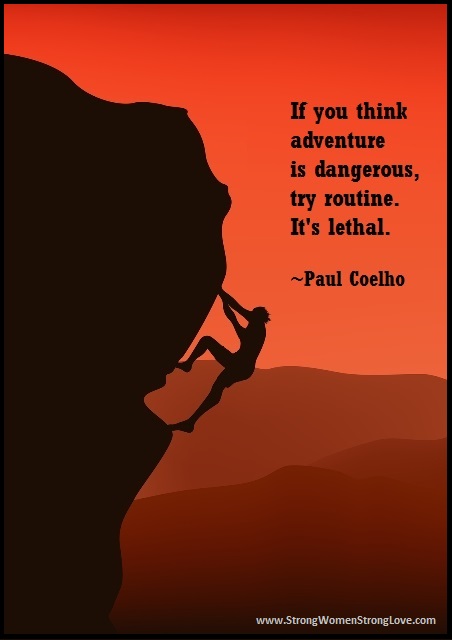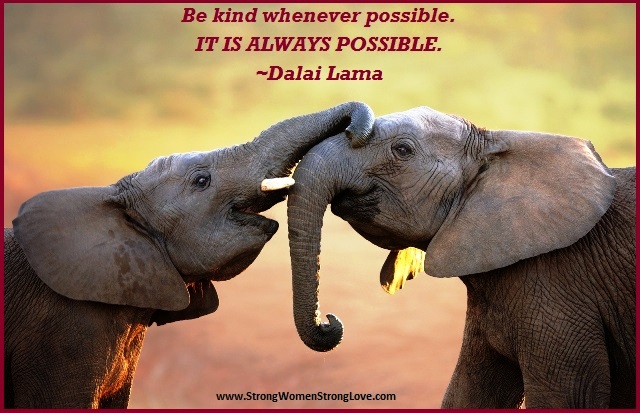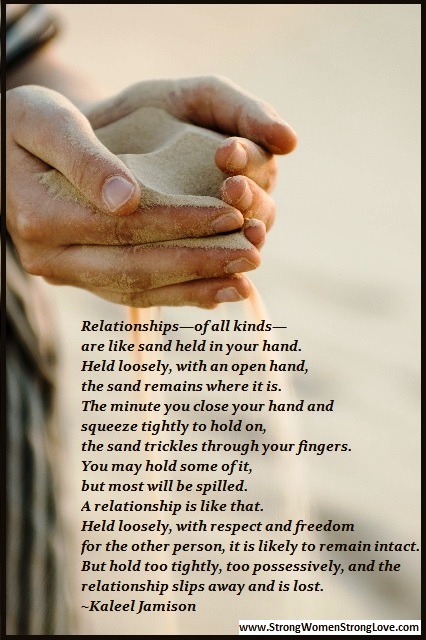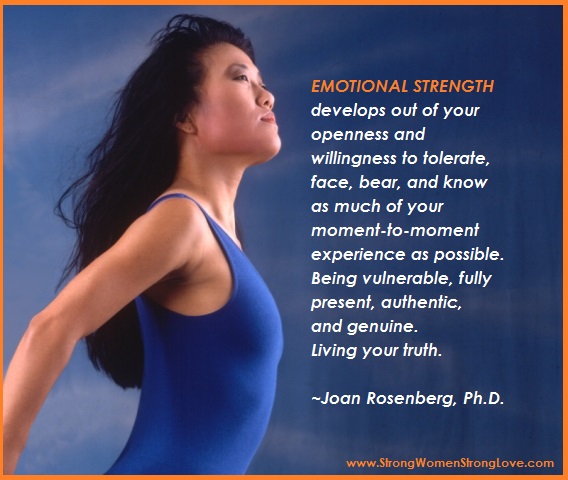by Strong Women Strong Love | May 30, 2013 | Poisonous Patterns, Videos |
It is vital to know what behaviors to stop if you want to keep your marriage strong. Here’s a great article by Dr. Renay Bradley in the Huffington Post that summarizes the behaviors research reveals are most likely to result in a couple getting divorced:
The Top Five Signs You May be Headed for Divorce
If you’ve ever been married or in a committed relationship, you likely know that marriage is not always bliss. Unfortunately, many of us have grown up thinking that, someday, we’ll marry our “Prince Charming” or “Cinderella” and live happily ever after. That’s the way it’s supposed to be, isn’t it? As a Family Psychologist and Director of Research and Programming at the Relationship Research Institute (a non-profit founded by Dr. John Gottman, dedicated to strengthening relationships through research)–also known as the “Love Lab”–I’ve seen my fair share of people who share this fantasy. Unfortunately, this fairytale ideal may have sadly given many of us somewhat unrealistic expectations when it comes to relationships. Luckily, Dr. John Gottman and his team at the Love Lab have spent the last 35+ years studying couples; this work has given us a more realistic understanding of what happy versus dysfunctional relationships look like.
Continue reading at http://www.huffingtonpost.com/renay-p-cleary-bradley/the-top-five-signs-that-y_b_833824.html
by Strong Women Strong Love | May 29, 2013 | Passionate Partnership, Quotes |

This quote by Paul Coelho got me thinking about routines and how they affect relationships. As a psychologist, I will tell you that routines are part of what keeps us sane. Given all the demands on us, some structure and predictability in our lives is absolutely necessary to keep stress at bay.
That being said, too much routine can be destructive. Relationships that last for several years often decline because they become downright boring and predictable. You go to the same places to eat. You always hang around the same people. You can even complete one another’s sentences because you’ve heard the same stories again and again.
Keeping a relationship interesting doesn’t mean you have to be spontaneous all the time, but it does require you to step outside the rut and do some things differently on occasion.
What are some of the things you do to keep your relationship interesting?
by Strong Women Strong Love | May 25, 2013 | Excerpts from Strong Women Strong Love, Passionate Partnership, Quotes |

An excerpt from Strong Women, Strong Love:
Studies across cultures identify kindness as one of the top qualities people seek in a partner. Kindness, sincerity, and warmth are essential to helping you and your partner open up to one another. Treat yourself with kindness, as if you were your own best friend. Welcome interactions with gentleness, remembering the power you have to crush a person’s spirit, even your own. We all want to feel treasured by the ones we love, so cherish your partner and let him know how much he means to you. A gentle, tender, compassionate stance in relating to your partner does wonders for nurturing authenticity because you are making it safe for both of you to be yourselves.
by Strong Women Strong Love | May 20, 2013 | Excerpts from Strong Women Strong Love, Passionate Partnership, Quotes |

An excerpt from Strong Women, Strong Love:
In a relationship, it is important to have some capacity for flexibility. There are times when you and your partner need to lean on each other, like when you are ill. Other times, you are distant from one another because you are simply busy or need space. The level of closeness can also fall somewhere between the two.
When each person in a relationship has a strong sense of self, they can move into different stances based on their needs. Movement away is not viewed as a threat, and movement toward is not considered suffocating because each person is emotionally secure, generally self-reliant, and trusting.
The two most problematic stances in a relationship are Excessively Close and Emotionally Distant. If you have a weaker sense of self, you are probably driven by fear, which makes you prone to being too close or too distant. It is difficult for you to accept the fluid nature of a relationship, so you may not allow your relationship the breathing room and intimacy necessary to grow in a healthy manner. These two stances may manifest in the ways listed below:
Excessively Close (Needy/Clingy)
- Needing constant reassurance
- Feeling intense jealousy
- Being intrusive
- Making your partner the center of your universe
- Nurturing your spouse excessively, relating more like a mom than a partner
- Acting like a victim, doormat, or helpless person
- Refusing to do anything independently of your partner
- Not knowing what you need or want
- Ignoring all other relationships
Emotionally Distant (Emotional Strangers)
- Hiding your true thoughts and feelings from your partner
- Being so independent your partner feels unnecessary in your life
- Avoiding deep connection
- Ignoring your partner’s needs
- Showing little interest in the details of your partner’s life
- Spending all your time with other people or other activities, including work
- Avoiding relationship problems that need to be addressed
If you are regularly relating to your partner in any of these ways, it is important to ask yourself what unfulfilled needs or wishes are driving you.
Although women are encouraged to make men the center of their world, men usually find this too intense and withdraw. What works better is having a life of your own that you gladly share with one another. A strong sense of self gives you the flexibility essential to a healthy relationship.
by Strong Women Strong Love | May 17, 2013 | Excerpts from Strong Women Strong Love, Quotes |

“Strong women value authenticity, personal growth, and genuine relationships. They are courageous and willing to embrace the truth, even if doing so causes some discomfort. Strong women are deeply committed to keeping both themselves and their relationships healthy and vibrant.
Strong women come from all walks of life. A strong woman might be the CEO of a major corporation, juggling tremendous work and family responsibilities. She could also be a busy, stay-at-home mom who is deeply invested in helping her children become successful, compassionate adults with good character. A strong woman could even be someone whose quiet, steady presence is a source of strength and inspiration to those around her.”
(Excerpt from Strong Women, Strong Love)
How emotionally strong are you?





